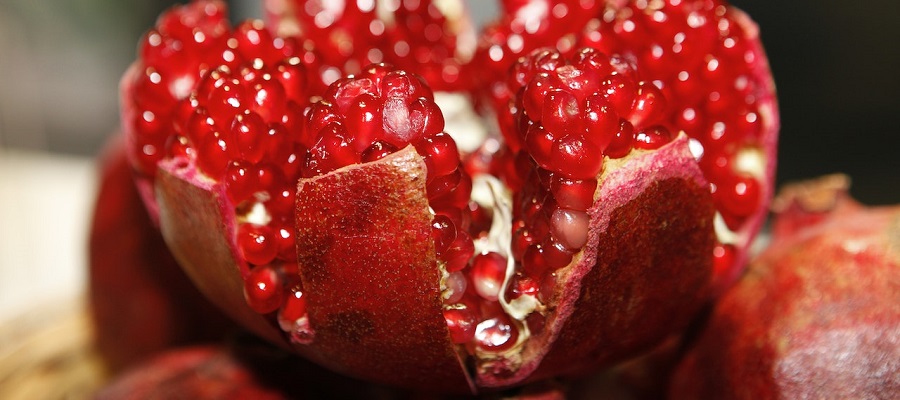Urolithin A supplements are very desired because of a lot of reasons. But before we got to that part, we would like to educate you a bit about the compound.
| Urolithin A | Description |
|---|---|
| Formation | Urolithin A is a compound produced by the gut microbiota through the metabolism of ellagitannins found in certain fruits and nuts, such as pomegranates, strawberries, raspberries, and nuts. |
| Cellular Health | Urolithin A has been studied for its potential to promote cellular health and longevity by activating the cellular recycling process called autophagy, which helps remove damaged cellular components and maintain cellular function. |
| Antioxidant and Anti-inflammatory Properties | Urolithin A exhibits antioxidant effects, helping to neutralize free radicals and reduce oxidative stress. It also displays anti-inflammatory properties, modulating inflammatory pathways in the body. |
| Exercise Performance | Urolithin A has shown promise in enhancing exercise performance and muscle health by improving mitochondrial function, promoting muscle growth, and potentially enhancing endurance. However, further research is needed for conclusive evidence and optimal dosages. |
| Age-Related Conditions | Preclinical studies suggest that urolithin A may have potential in combating age-related conditions such as neurodegenerative diseases, muscle wasting, and cardiovascular health. Human trials are necessary to confirm these findings. |
| Bioavailability | The bioavailability of urolithin A can vary among individuals, depending on factors such as gut microbiota composition and individual metabolism. Some individuals may produce more urolithin A from dietary ellagitannins than others. |
Urolithin A is a naturally occurring compound that is derived from ellagitannins, a type of polyphenol found in certain fruits and nuts. It is formed through the action of gut bacteria on ellagitannins during digestion. Urolithin A has gained attention due to its potential health benefits and its role in cellular health and longevity.
Here are some key points about urolithin A:
-
Formation: Urolithin A is produced when ellagitannins from foods such as pomegranates, strawberries, raspberries, and nuts are metabolized by specific gut bacteria, primarily species from the genus Gordonibacter, Ellagibacterium, and Urolithin-producing bacteria.
-
Cellular Health: Urolithin A has been studied for its potential role in promoting cellular health and longevity. It activates a cellular recycling process called autophagy, which helps remove damaged or dysfunctional cellular components, including mitochondria, to maintain cellular health.
-
Antioxidant and Anti-inflammatory Properties: Urolithin A has shown antioxidant and anti-inflammatory effects in various studies. It can help neutralize harmful free radicals, reduce oxidative stress, and modulate inflammatory pathways in the body.
-
Exercise Performance: Urolithin A has been investigated for its potential benefits in exercise performance and muscle health. It may enhance mitochondrial function, promote muscle growth, and improve endurance. However, more research is needed to establish its efficacy and optimal dosages for these purposes.
-
Age-Related Conditions: Urolithin A has shown promise in preclinical studies for its potential to combat age-related conditions such as neurodegenerative diseases, muscle wasting, and cardiovascular health. However, further research, including human trials, is necessary to validate these findings.
-
Bioavailability: The bioavailability of urolithin A can vary among individuals, as it depends on factors such as gut microbiota composition and individual metabolism. Some individuals may produce more urolithin A from dietary ellagitannins than others.
It's important to note that while urolithin A shows promise in various areas of research, the available studies are primarily preclinical or based on cell cultures. Further research, including human clinical trials, is needed to fully understand its effects, optimal dosages, and long-term safety profile.
What foods are good to supplement Urolithin A?
Urolithin A is derived from the metabolism of ellagitannins found in certain foods. Here are some foods that are known to contain relatively higher levels of ellagitannins and, consequently, may be sources of urolithin A:
-
Pomegranates: Pomegranates and their juice are rich in ellagitannins, particularly punicalagins. The peel and pith of pomegranates contain higher concentrations of ellagitannins compared to the arils (juicy red seeds).
-
Strawberries: Strawberries are another fruit that contains ellagitannins, particularly in their seeds and skin. Ripe strawberries, especially those with a darker red color, tend to have higher levels of ellagitannins.
-
Raspberries: Raspberries, especially red and black varieties, contain ellagitannins. The levels of ellagitannins in raspberries can vary based on the cultivar and ripeness.
-
Nuts: Certain nuts, such as walnuts, pecans, and almonds, are known to contain ellagitannins. However, the concentration of ellagitannins in nuts can vary, and it may depend on factors such as the nut variety and processing methods.
It's important to note that the content of ellagitannins and urolithin A in these foods can vary depending on factors such as the fruit variety, ripeness, growing conditions, and processing methods. Additionally, the conversion of ellagitannins to urolithin A in the body can vary among individuals based on their gut microbiota composition.
Including these foods as part of a balanced diet can provide a potential source of ellagitannins, which can contribute to the production of urolithin A in the body. However, the precise amount of urolithin A produced and its impact on health outcomes are still areas of ongoing research.
Which supplements contain a lot of urolithin A?
As of now, there are limited urolithin A supplements available on the market, and their efficacy and safety are still being evaluated. It's important to note that urolithin A is primarily formed in the body through the metabolism of ellagitannins by gut bacteria rather than being directly obtained through supplements. However, there are some products that claim to contain urolithin A or its precursors. If you are considering urolithin A supplementation, it is crucial to do thorough research and consult with a healthcare professional before making a decision.
When it comes to urolithin A supplementation, the following points are worth considering:
-
Urolithin A Precursors: Some supplements may contain precursors or intermediates that are converted into urolithin A in the body. These precursors typically include ellagitannins or extracts derived from ellagitannin-rich foods such as pomegranates, raspberries, or strawberries.
-
Bioavailability: The bioavailability of urolithin A and its precursors can vary depending on factors such as gut microbiota composition, individual metabolism, and the specific form of the supplement. Further research is needed to understand the absorption, metabolism, and bioavailability of urolithin A supplements.
-
Quality and Purity: When considering urolithin A supplements, it's important to choose products from reputable manufacturers who adhere to good manufacturing practices and undergo rigorous testing for quality and purity. Look for supplements that have undergone third-party testing and have transparent labeling.
-
Safety and Potential Side Effects: Since urolithin A supplementation is a relatively new area of research, limited information is available on its long-term safety and potential side effects. It is advisable to consult with a healthcare professional before starting any new supplement to ensure it is suitable for your individual health status and any specific concerns.
It's important to note that while urolithin A shows promise in scientific studies, further research is needed to establish its optimal dosage, long-term safety, and efficacy as a supplement. Consulting with a healthcare professional who is knowledgeable about the latest research and can provide personalized advice is recommended before considering urolithin A supplementation.


